
ASERT-IRACDA Fellows (Current) Summary
ASERT-IRACDA Fellows (Alumni - under construction) Summary
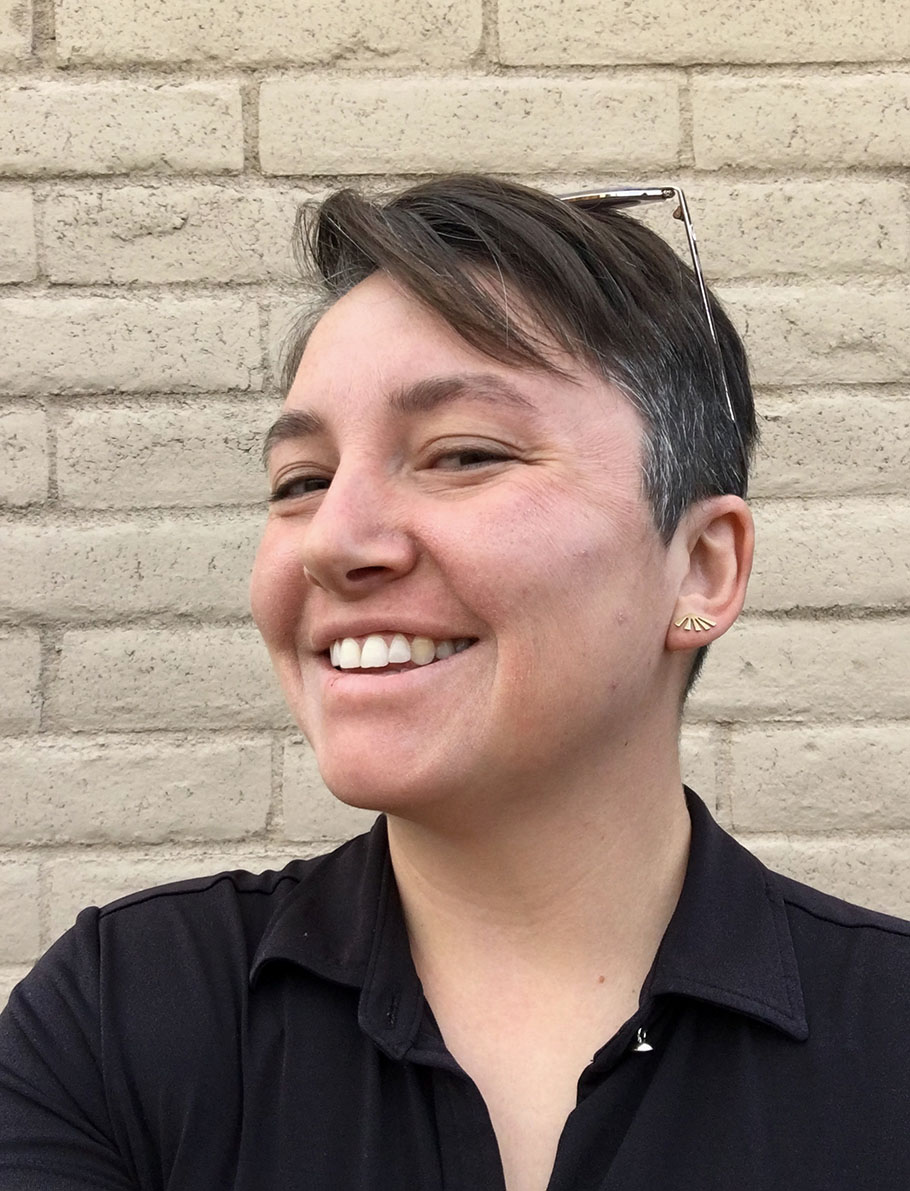
Cait McPherson, Ph.D.
University of New Mexico
ASERT Postdoctoral Scholar
Department of Anthropology
Mentor: Heather Edgar, Ph.D. and Lexi O’Donnell, Ph.D.
Cait McPherson is an ASERT-IRACDA postdoctoral fellow mentored by Drs. Heather Edgar and Lexi O’Donnell in the Department of Anthropology’s Bridge Lab. Her current research uses skeletal and dental biomarkers to examine associations between indicators of gestational stress, prematurity, and developmental instability in New Mexico Decedent Image Database (NMDID). A bioarchaeologist by training, Cait is broadly interested in applying insights from the extended evolutionary synthesis to archaeological and medical research, in order to better understand how processes of extragenetic inheritance shape patterns of phenotypic variation and contribute to evolutionary processes. During her Ph.D. at the University of Arizona, she developed an approach to examining developmental plasticity in the skeletal system utilizing a sensitive developmental windows framework to correlate the timing of stress episodes embodied in hard tissue and downstream phenotypic effects. Previously, she’s conducted bioarchaeological and ethnographic research in support of the National Park Service (NPS), the La Playa Archaeological Research Project, and the Instituto Nacional de Antropología e Historia (INAH) in Puebla, Mexico. When not in the field or lab, Cait enjoys scientific illustration, sketching, outdoor sports, and gardening. (Don’t ask her about desert plants, she’ll talk your ears off.)
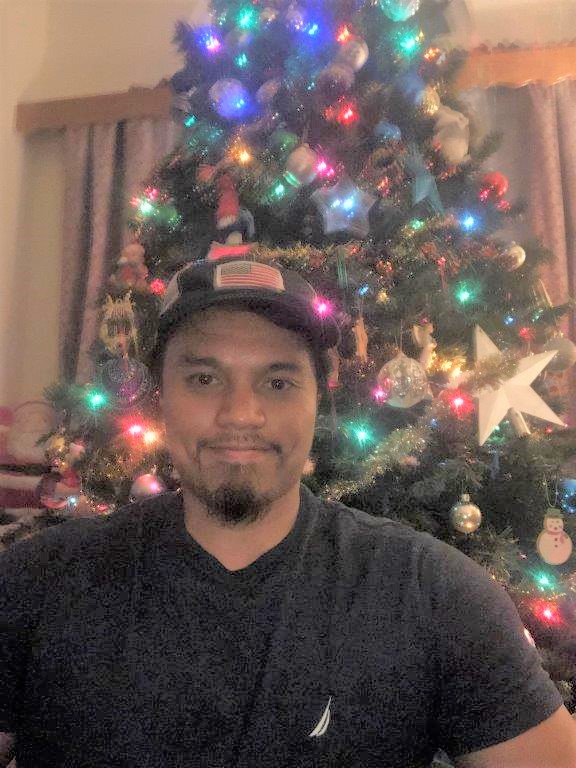
Christian Cabanlong, Ph.D.
University of New Mexico
ASERT Postdoctoral Scholar
College of Pharmacy
Mentor: Sarah J. Blossom, Ph.D.
Education:
B.S. – Biology, University of New Mexico
Ph.D. – University of Arkansas for Medical Sciences
Christian is an ASERT-IRACDA postdoctoral fellow mentored by Dr. Sarah Blossom in the College of Pharmacy. His current research is focused on the toxicant trichloroethylene and the role it plays in the progression of autoimmunity. He earned his Ph.D. at the University of Arkansas for Medical Sciences where his research focused on the pharmacodynamic interactions of the cannabinoid 1 receptor and abused synthetic cannabinoids. Christian was raised in Rio Rancho, NM and has returned to use his pharmacology background to study toxicants. He has various interest such as weight lifting, bodybuilding competitions, guns, hunting, video games, and spending time with family.
Alex Fancian, Ph.D.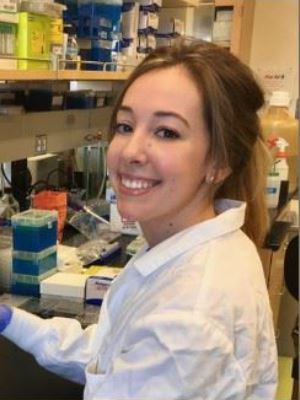
University of New Mexico
ASERT Postdoctoral Scholar
Division of Molecular Medicine
Mentor: Bryce Chackerian, Ph.D.
Education:
B.S. Biological Sciences – University of Alaska Anchorage
Ph.D. Biochemistry – University of Alaska Fairbanks
Alex Francian is an ASERT-IRACDA fellow under the guidance of Dr. Bryce Chackerian in the Department of Molecular Genetics and Microbiology. Her research interests include developing immunotherapies and vaccines for the treatment of cancer and other malignancies and diseases. Her postdoctoral research focuses on developing vaccines for malaria and mosquito-borne viruses using virus-like particle (VLP) vaccine platforms. During her Ph.D. at the University of Alaska, she worked to develop and characterize a novel cancer immunotherapy using complement C3-targeted liposome nanoparticles. Growing up in Alaska, she has a love for all things outdoors, including skiing, hiking, rock climbing, and kayaking. She also has interests in graphic design and enjoys sketching in her free time.
Publications
Francian A, Mann K, Kullberg M. Complement C3-dependent uptake of targeted liposomes into human macrophages, B cells, dendritic cells, neutrophils, and MDSCs. Int J Nanomedicine. 2017;12:5149-5161. Published 2017 Jul 19. doi:10.2147/IJN.S138787
Francian A, Namen S, Stanley M, Mann K, Martinson H, Kullberg M. Intratumoral delivery of antigen with complement C3-bound liposomes reduces tumor growth in mice. Nanomedicine. 2019;18:326-335. doi:10.1016/j.nano.2018.10.009
Francian A, Widmer A, Olsson T, et al. Delivery of toll-like receptor agonists by complement C3-targeted liposomes activates immune cells and reduces tumour growth. J Drug Target. 2021;29(7):754-760. doi:10.1080/1061186X.2021.1878364
Kullberg M, Francian A, Arabi A, Olsson T, Mann K, Martinson HA. Liposome Delivery of Natural STAT3 Inhibitors for the Treatment of Cancer. Pharm Front. 2019;1:e190007. doi:10.20900/pf20190007
Marcus M. Garcia, Pharm.D., M.A.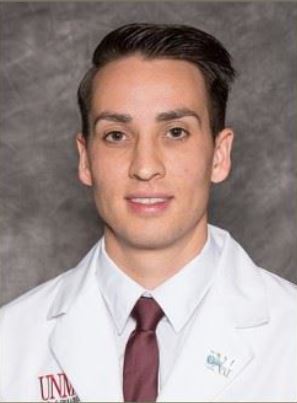
University of New Mexico
ASERT Postdoctoral Scholar
Department of Pharmaceutical Sciences
Health Sciences Center
Mentor: Matthew Campen, Ph.D.
Co-Mentor: Eliseo Castillo, Ph.D..
Education:
Pharm.D., Doctor of Pharmacy, University of New Mexico (May 2020)
M.A., Human Performance and Sports, Sports Marketing, New Mexico Highlands University (December 2015)
B.S., Biology, Minor in Chemistry, New Mexico Highlands University (May 2013)
Marcus Garcia is an ASERT-IRACDA fellow under Dr. Matthew Campen's guidance in the pharmaceutical science department. His disciplinary background includes clinical pharmacy, reproductive and inhalation toxicology, and informatics pharmacy. Marcus Completed a Clinical Research Fellowship with TriCore Reference Laboratories/Rhodes Group in 2021, where he supported unique research and patient care initiatives involving pharmacy and the clinical laboratory. As a fellow with TriCore, his research project was aimed to assess the value of longitudinal Laboratory data for early identification of allograft dysfunction within the renal transplant population in New Mexico. Additionally, he gained teaching experience with the University of New Mexico College of Pharmacy by providing guest lectures in Pathology and Clinical Capstone courses. He also aids in teaching the Human Anatomy and Physiology course at Central New Mexico Community College. Additionally, he has previous experience teaching Medical Terminology before starting pharmacy school and provided lectures and presentations in higher education and continuing education courses for pharmacists throughout the state.
Marcus' current research aims to assess microplastic exposure and develop novel techniques for quantifying microplastic accumulation in different tissues and their impact on patient health. His primary goals are geared toward a career path toward incorporating cutting-edge approaches in research development and providing an opportunity to guide students to pursue careers in pharmacy and clinical research.
Recent Publications:
Hayek E, Castillo E, Sanchez Parra A, Garcia M, Cerrato J, Brearley A, Gonzales Estrella J, Herbert G, Benavidez A, Wang R, Yin L, Campen M, Yu X. Photoaging of Polystyrene Microplastics Causes Oxidative Alterations to Surface Physicochemistry and Enhances Airway Epithelial Toxicity. Toxicological Sciences. 2022 (In Review)
Garcia M, Salazar R, Wilson T, Lucas S, Herbert G, Young T, Begay J, Denson JL, Zychowski K, Ashley R, Byrum S, Mackintosh S, Bleske BE, Ottens AK, Campen MJ. Early Gestational Exposure to Inhaled Ozone Impairs Maternal Uterine Artery and Cardiac Function. Toxicol Sci. 2021 Jan 6;179(1):121-134.
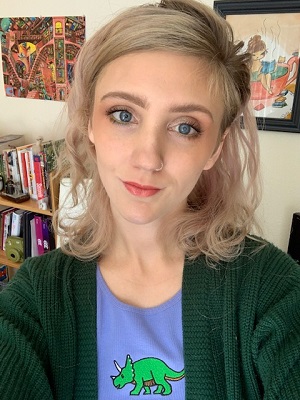
Elizabeth Bailey, Ph.D.
University of New Mexico
ASERT Postdoctoral Scholar
Department of Pathology
Mentor: Diane S. Lidke, Ph.D.
Education:
BA - Biology and Chemistry, Olivet College, Michigan
PhD - Biochemistry, South Dakota State University, South Dakota
Elizabeth Bailey is an ASERT-IRACDA fellow under the guidance of Dr. Diane Lidke in the department of pathology. Her research interests include understanding the biophysical properties that govern activation and signaling of immune receptors. Elizabeth’s post-doctoral research focuses on the Fcε receptor (FcεR) and B cell receptor (BCR), utilizing super-resolution microscopy techniques to interrogate the influence of antigen properties such as valency, spacing and rigidity on the spatiotemporal organization of aggregated receptors and site-specific phosphorylation events. Her PhD research studied the mechanisms controlling the Fcγ receptor (FcγR) activation on the surface of macrophages. Using optical microscopy techniques, Elizabeth observed a unique route of activation for low valency receptor aggregates as well as how membrane bending facilitates the organization of FcγR aggregation and signaling during frustrated phagocytosis.
Publications
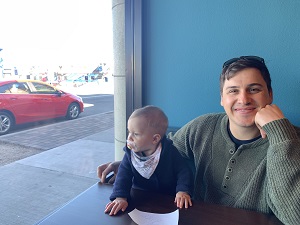
Thomas A. De Pree, Ph.D.
University of New Mexico
ASERT Postdoctoral Scholar
Department of Pharmaceutical Sciences
Health Sciences Center
Mentor: Debra MacKenzie, Ph.D.
Co-Mentor: Johnnye Lewis, Ph.D.
Education:
Ph.D., Science and Technology Studies, Rensselaer Polytechnic Institute (August 2019)
M.S., Science and Technology Studies, Rensselaer Polytechnic Institute (May 2019)
M.A., Anthropology and Education, Teachers College, Columbia University (May 2015)
B.A., Anthropology and Psychology, University of New Mexico (January 2010)
Thomas De Pree is an ASERT-IRACDA fellow under the guidance of Dr. Debra MacKenzie in the department of pharmaceutical science. His disciplinary background is in sociocultural anthropology and archaeology; and he has interdisciplinary and collaborative research and teaching experience in the fields of Native American and Indigenous studies (NAIS), environmental policy, science and technology studies (STS), and STEM education research. His dissertation entitled, "The Life of the By-Product in the 'Grants Uranium District' of Northwestern New Mexico" (August 2019), examines the promise of ecological modernization theory through an ethnographic account of the limitations and possibilities of cleaning up so-called environmental "sacrifice zones." Based on over two years of multi-locale ethnographic research on the relationship between local communities, government employees, and transnational mining corporations, the dissertation examines the diverse forms of expertise and the dense entanglements of science, technology, and politics invested in "reclaiming" abandoned mine lands, "remediating" contaminated sites, and "restoring" the natural and cultural resources of northwestern New Mexico. The research responsibilities of his postdoctoral work include the advancement of ethnographic principles of investigation for community-based participatory research and critical multi-stakeholder analysis of the UNM METALS Superfund Research Center Program; the teaching responsibilities of his postdoc work include curricular development and programmatic planning in the Environmental Science Program at Southwestern Indian Polytechnic Institute (SIPI).
Recent Publications and Conference Papers:
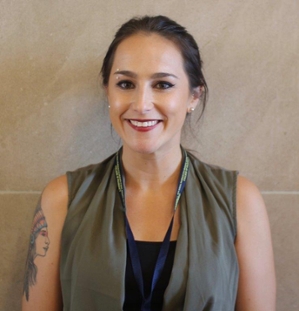
Emily Morin, Ph.D.
University of New Mexico
ASERT Postdoctoral Scholar
Department of Cell Biology & Physiology
Mentor: Jay Naik, Ph.D.
Education:
B.S. Biology — University of Southern Maine, Portland, ME (2013)
M.S. Pharmaceutical Sciences— University of Michigan, Ann Arbor, MI (2015)
Ph.D. Pharmaceutical Sciences — University of Michigan, Ann Arbor, MI (2019)
Emily is an ASERT-IRACDA postdoctoral fellow mentored by Dr. Jay Naik in the Department of Cell Biology and Physiology Vascular Physiology Group. Her current research examines the role of endothelial cell membrane cholesterol on regulating vascular ion channel function, with a focus on regulation of TRPV4. During her Ph.D. at the University of Michigan, she worked to develop synthetic high-density lipoprotein nanoparticles to resolve endothelial dysfunction in cardiovascular disease and sepsis. In addition to her research, Emily was also highly involved in the AAPS student chapter at U of M and served on the Graduate Education Committee at the College of Pharmacy to help enhance professional and educational development opportunities for graduate students. Outside of the lab, Emily spends her time volunteering at the local animal shelter. Growing up in Maine, she has developed a love for all things outdoors—hiking, biking, running, and camping, to name a few.
Publications:
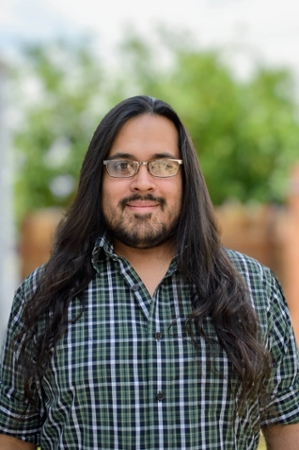
Emmanuel Rosas, Ph.D.
University of New Mexico
ASERT Postdoctoral Scholar
Division of Molecular Medicine
Mentor: Eric R. Prossnitz, Ph.D.
Education:
B.S. – Biology – University of Texas at Brownsville, Brownsville, TX (2015)
Ph.D. – Molecular Biology – University of Colorado Anschutz Medical Campus, Aurora, CO (2020)
Emmanuel “Manny” Rosas is an ASERT-IRACDA fellow under the guidance of Dr. Eric Prossnitz in the department of internal medicine, division of molecular medicine. Manny’s postdoctoral research focuses on the role of G-protein coupled estrogen receptor (GPER) in the development of anti-hormone resistance and whether novel therapeutic anti-hormone approaches that prevent cross-activation of GPER can reduce anti-hormone resistance in ERα-positive breast cancers. Manny grew up in Brownsville, TX and earned his Ph.D. at the University of Colorado Anschutz Medical Campus, where he studied how a TGFβ-androgen receptor (AR) signaling axis affects anoikis resistance in triple negative breast cancer (TNBC). He also served as secretary, and then president, of the Society for Advancement of Chicanos/Hispanics and Native Americans in Science (SACNAS) chapter at the Anschutz Medical Campus. Manny strives to receive the training necessary to direct his own lab, where he hopes to train students from underrepresented minority groups for careers in the biomedical sciences. In his free time, Manny enjoys writing and spending time with his wife and kids/cats.
Recent Publications:
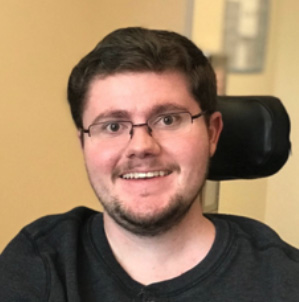
Tye D. Martin, Ph.D.
University of New Mexico
ASERT Postdoctoral Scholar
Department of Chemical and Biological Engineering
Mentor:
Heather E. Canavan, Ph.D.
Education:
B.S. – Chemical Engineering, University of New Mexico, Albuquerque, NM (2013)
Ph.D. – Biomedical Engineering, University of New Mexico, Albuquerque, NM (2019)
Tye Martin is an ASERT-IRACDA post-doctoral fellow mentored by Dr. Heather E. Canavan in the Department of Biological and Chemical Engineering. The focus of Tye’s research is on development of adaptive biomedical and mechanical devices geared toward providing effective tools for completing daily living and occupational activities to people with disabilities due to surgery, aging, or progressive diseases. The design and fabrication of these adaptive technologies will be carried out through potential user discovery, modeling and 3D printing, and iterative prototyping. Tye is also interested in improving the educational experience of underrepresented groups, including students with disabilities, in the STEM fields by stressing the importance of team-based curriculum that promotes creative and inclusive learning.
Tye’s Ph.D. work under the mentorship of Dr. Deborah G. Evans and Dr. Eva Y. Chi involved investigation of bioactive, theranostic compounds (including curcumin and phenylene-ethynylene molecules) and their molecular-scale interactions with misfolded protein assemblies found in Alzheimer’s disease using molecular dynamics simulations.
Publications
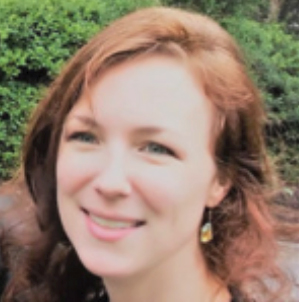
Raquela Thomas
University of New Mexico
ASERT Postdoctoral Scholar
Division of Molecular Medicine
Mentor:
Eric Bartee, Ph.D.
Education:
B.S. – Biology – Northern Arizona University
Ph.D. – Biomedical Sciences – Medical University of South Carolina
Raquela is an ASERT-IRACDA postdoctoral fellow mentored by Dr. Eric Bartee in the School of Medicine, Division of Molecular Medicine. Her current research seeks to explore molecular mechanisms behind oncolytic virotherapy, utilizing a pox virus to deliver targeted therapy to tumors. She grew up in Santa Fe, N.M. and earned her Ph.D. at the Medical University of South Carolina in Charleston, where she performed research on the role of Human papillomavirus in improved response to treatment in head and neck cancer.
After earning her Ph.D. she worked for Guild Biosciences studying phage-based systems for detection of biowarfare microbial pathogens. She gained clinical experience as a Research Coordinator for Phase 1 trials at the UNM Comprehensive Cancer Center, and is excited to contribute to translational discoveries back at the bench. Her work with patients and her history of volunteering with science outreach programs have inspired her to enjoy this opportunity to teach a new generation of scientists. In her free time, Raquela enjoys skiing, backpacking, rock climbing, yoga, and chasing her dog PePe.
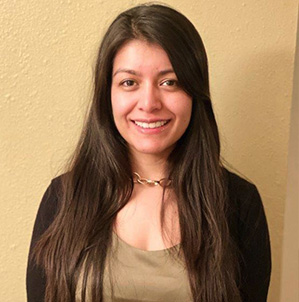
Leslie Toledo-Jacobo, Ph.D.
University of New Mexico
ASERT Postdoctoral Scholar
Department of Pathology
Mentor:
Dr. Angela Wandinger-Ness
Education:
B.S. Biology, Universidad Michoacana de San Nicolas de Hidalgo, Morelia, Michoacán, México
Ph.D. Biology, New Mexico State University, Las Cruces, NM
Leslie Toledo-Jacobo is an ASERT-IRACDA post-doctoral fellow mentored by Dr. Angela Wandinger-Ness in the Department of Pathology at the University of New Mexico. Leslie’s postdoctoral research focuses on the downstream effectors of the GTPases Rac1 and Cdc42 responsible for cell migration and polarization in ovarian cancer cells. During her Ph.D. work at NMSU she studied the regulation of the cytoskeleton in early invertebrate embryos. In addition to this work, Leslie served as a member of Voice Against Cancer collaborating in projects to assist cancer patients locally and internationally. Outside of the lab, Leslie enjoys hiking, playing around with her sketch notebook, and spending time with her family and friends.
Recent Publications:
Victoria "Tori" Balise, Ph.D.
University of New Mexico
ASERT Postdoctoral Scholar
Department of Pathology
Mentor:
Jennifer Gillette, Ph.D.
Education:
B.S. - Biochemistry- New Mexico State University
Ph.D. - Biological Sciences- University of Missouri
Tori is an ASERT-IRACDA post-doctoral fellow mentored by Dr. Jennifer Gillette in the Department of Pathology. Her current research interests include understanding the stem cell and tumor cell signaling within the bone marrow microenvironment.Tori was born and raised in Albuquerque, but attended college in Las Cruces at New Mexico State University. Her undergraduate research focused on protein characterization with her advisor Dr. Shelly Lusetti. While at NMSU she also took part in the Minority Biomedical Research Support - Research Initiative for Scientific Enhancement (MBRS-RISE) to Excellence Program. She continued on to graduate school receiving her PhD from University of Missouri. Her dissertation comprised of projects researching the health effects of exposure to a mixture of chemicals found in unconventional oil and gas processes. Over 1000 different chemicals have been reported to be used in this process and include known neurotoxins, carcinogens, and endocrine disruptors. Previously our lab has shown antagonist activity in 23 of 24 oil and gas chemicals tested for estrogen, androgen, progesterone, glucocorticoid, and/or thyroid receptors. Developmental exposure to EDCs has been associated with a multitude of health effects in adulthood, including infertility and metabolic disease. Her work comprised of how developmental exposure to mixture of unconventional oil and gas processes alters energy expenditure and reproduction. Aside from research she also taught sections for Animal Physiology lab.
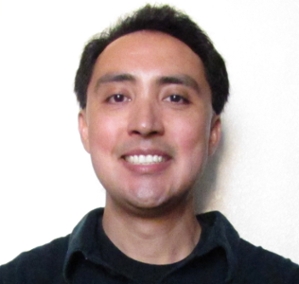
Daniel Falcon, Ph.D.
University of New Mexico
ASERT Postdoctoral Scholar
Department of Biochemistry and Molecular Biology
Mentor:
Xiang Xue, Ph.D.
Education:
B.S. - University of California, Riverside
Ph.D. - University of Arkansas, Fayetteville
Dr. Daniel Falcon is an ASERT-IRACDA fellow mentored by Dr. Xiang Xue in the Department of Biochemistry and Molecular Biology at the University of New Mexico Health Sciences Center. Daniel was born and raised in the San Gabriel Valley of Southern California and received his B.S. in Biology at the University of California, Riverside in 2003. After spending some time in the pharmaceutical industry and making the move to Northwest Arkansas to be with his future wife, Daniel decided to pursue a graduate degree at the University of Arkansas, Fayetteville where In 2018 he was awarded his Ph.D. in Cell & Molecular Biology.
As a graduate student, Daniel’s dissertation focused on examining key aspects of the melanocyte-specific autoimmune response in the Smyth chicken model for vitiligo. Results from these studies have revealed, for the first time, a possible role for immunoregulatory mechanisms in the prevention of disease onset in genetically susceptible individuals. As a post-doctoral fellow in the lab of Dr. Xiang Xue, Daniel will be studying the role of iron and other micronutrients in the initiation and progression of colorectal cancer. Away from the lab Daniel enjoys spending time with his family, listening to old vinyl records and watching good movies.

Christy Mancuso, Ph.D.
University of New Mexico
ASERT Postdoctoral Scholar
Department of Biology
Mentor:
Dr. Seth Newsome
Education:
B.S. Biology, American University, Washington, DC
M.S. Biomedical Forensic Sciences, Boston University School of Medicine, Boston, MA
Ph.D. Biology, University of Utah, Salt Lake City, UT
Christy Mancuso is an ASERT-IRACDA post-doctoral fellow mentored by Dr. Seth Newsome in the Department of Biology at the University of New Mexico. Christy earned her BS in Biology from American University in Washington, DC, MS in Biomedical Forensic Sciences from Boston University School of Medicine, Boston, MA, and her Ph.D. at the University of Utah in the Department of Biology. Her doctoral work was conducted under the mentorship of Dr. James Ehleringer and focused on using stable isotope biomarkers in human fingernails for diet and travel history reconstruction of modern human populations. Christy’s current post-doctoral research is focusing on the examining the role of the gut microbiome in amino acid synthesis in deer mice and using compound specific isotope analysis of amino acids. In addition to this work, Christy is continuing her Ph.D. work and examining how hydrogen isotopes of specific amino acids can be used to refine the spatial scale for human travel history reconstruction. During her Ph.D., Christy served as a laboratory instructor for an international stable isotope short course at the University of Utah, where she taught and interacted with a diverse range of graduate students, post-doctoral fellows, and professionals. Outside of the lab, Christy enjoys skiing, baking and cooking, and pursuing artistic endeavors.
Recent Publications:
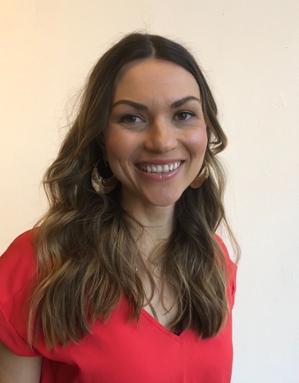
Nicole Thompson, Ph.D.
University of New Mexico
ASERT Postdoctoral Scholar
Department of Anthropology
Mentor:
Melissa Emery Thompson, Ph.D.
Education:
BA - Evolutionary Anthropology, Columbia University, New York
MRes - Primate Biology and Conservation, Roehampton University, London
PhD - Ecology and Evolution, Columbia University, New York
Nicole Thompson is an ASERT-IRACDA fellow under the guidance of Dr. Melissa Emery Thompson in the department of Anthropology. Her research interests are in understanding the costs and benefits of social behavior at different life stages in group-living animals. Nicole's post-doctoral research focuses on the role of oxidative stress in aging and social factors in health outcomes in wild chimpanzees living in Uganda. Her PhD research examined how social behavior corresponds with allostatic load during development and with longevity during adulthood in wild blue monkeys, living in western Kenya. Her teaching goals are to develop basic programming and scientific data mining skills among students of underrepresented populations in STEM.
Publications: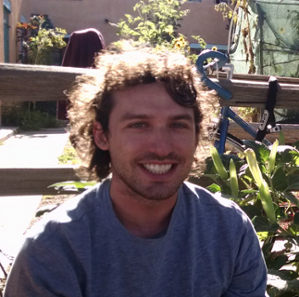
Daniel Barto, Ph.D.
University of New Mexico
ASERT Postdoctoral Scholar
Department of Pathology
Mentor:
Dr. Elaine Bearer
Education:
B.A. Psychology – The University of Chicago
M.Ed Mind, Brain & Education – Harvard Graduate School of Education
PhD Psychology – The University of New Mexico
My name is Dr. Daniel Barto and I am an ASERT-IRACDA fellow mentored by Dr. Elaine Bearer in the Department of Pathology. I grew up outside of Philadelphia, and completed my BA in Psychology at the University of Chicago studying the interaction of impulsive trait disorder and amphetamine use on cognitive function. My post doctoral research involves investigating how genetic alterations to the serotonin reuptake transporter influences neural circuitry and behavior. This basic science research has implications in understanding how traumatic events alter brain development via changes to the global monoamine distribution system.
Prior to my post-doctoral research, I studied spatial learning at the University of New Mexico. For my dissertation, I created a virtual reality maze—inspired by the classic rat maze studies—to examine how humans’ electrical signals of the brain and patterns of eye movement could predict their ability to escape.
Outside of the lab, I am passionate about teaching and observing how effective learning occurs—from the molecular level up to the sociocultural level. In my spare time I enjoy learning to play guitar and cultivating my xeriscape garden.
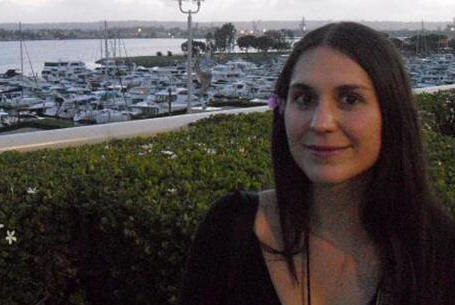
Department of Infectious Diseases
Education
Biology
New Mexico State University
Mentor
Samuel Lee, MD/PhD
Biography
Alba is an ASERT post-doctoral fellow under the guidance of Dr. Lee in the Department of Infectious Diseases. Her post-doctoral work investigates the molecular pathogenesis of Candida albicans, including the role of secretory proteins in virulence and biofilm formation. Alba has a Bachelor of Science in Microbiology from Chihuahua, Mexico and a Master's and Doctoral degrees from New Mexico State University. Her graduate dissertation focused in deciphering the role of multiple structural and regulatory genes in biofilm formation using the symbiotic bacterium Vibrio fischeri as a model system. Additionally, she has explored how environmental factors affect the population of a microbial biofilm and the type of responses that microbial communities use to avoid predation in marine ecosystems. In the classroom, she has taught basic microbiology courses to undergraduate students, as well as advanced microbial genetic classes to undergraduate and graduate students. Outside of work, Alba tries to find time to play her violin and read history and mystery books.
Publications
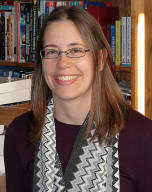
Department of Molecular Genetics and Microbiology
Education
BS-Secondary Education-Kansas State University
MS-Entomology-Kansas State University
PhD-Biochemistry-Kansas State University
Mentor
Bryce Chackerian, PhD
Biography
Jayne is an ASERT-IRACDA post-doctoral scholar mentored by Dr. Bryce Chackerian in the Department of Molecular Genetics and Microbiology. Her post-doctoral research focuses on the identification of potential dengue virus vaccine candidates using a virus-like particle display library. Originally from Tecumseh, Nebraska, Jayne has lived, studied, and played collegiate volleyball in Manhattan, Kansas. Her master's thesis explored bacteria, nematode, and insect interactions during the Steinernema riobrave host-infection process while her Ph.D dissertation investigated the role of extracellular serine proteinases and serine proteinase inhibitors in the innate immune responses of Manduca sexta. As part of her graduate training, Jayne served as a teaching assistant for two years and was awarded the Biochemistry Hedgcoth Outstanding Graduate Teaching Award in 2008. Jayne supervised two undergraduate students working in the laboratory of Dr. Michael Kanost as part of the Developing Scholars Program for underrepresented students and co-supervised one graduate student at KSU. Outside of work, Jayne enjoys baking, playing volleyball, hiking, and traveling.
Publications
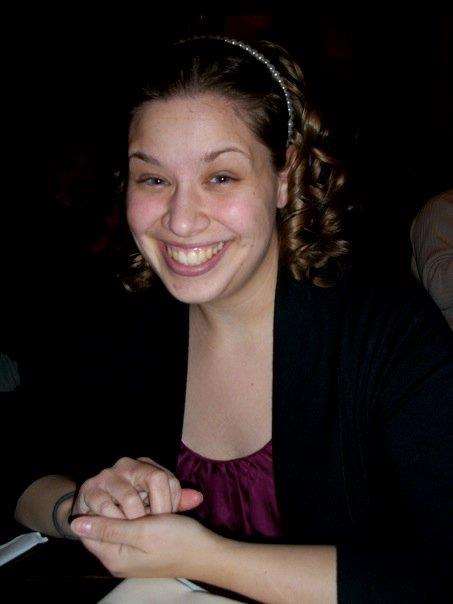
Department of Pharmaceutical Sciences
Education
B.S. - Cellular and Molecular Biology - The University of Michigan
Ph.D. - Biological Sciences - University of Delaware
Mentor
Laurie Hudson, Ph.D.
Biography
Erica is an ASERT-IRACDA postdoctoral fellow under the guidance of Dr. Laurie Hudson in the Department of Pharmaceutical Sciences in the College of Pharmacy. Previous research in the Hudson laboratory demonstrated the co-carcinogenic effects of low-dose arsenic and uranium by the inhibition of DNA repair mechanisms. Erica's postdoctoral research project focuses on examining a role for zinc supplementation as a way to attenuate the negative effects of exposure to arsenic and uranium. Growing up in Michigan, Erica attended The University of Michigan where she was heavily involved in undergraduate research projects. Her dissertation project at the University of Delaware explored the role of the type I insulin-like growth factor receptor in prostate and inflammatory breast cancer. In addition, she helped create and characterize an in vitro modeling system to study inflammatory breast cancer. While in graduate school, Erica had the opportunity to supervise undergraduate students in the laboratory of Dr. Kenneth van Golen as well as TA a number of courses including Microbiology, Introductory Biology and Advanced Cellular Biology. Outside of work, Erica enjoys running, traveling, hiking and baking.
Publications (* denotes 1st author)
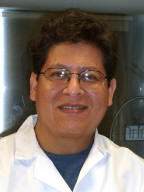
Current position:ᅠ Biochemistry Education Research Fellow
Department of Biochemistry and Molecular Biology
University of New Mexico School of Medicine
sdeharo@salud.unm.edu
Cancer Research & Treatment Center
Education
Mentors
Robert Hromas, MD
Corrie Andries
Biography
Sergio De Haro, Ph.D., is a first-year ASERT-IRACDA Postdoctoral Fellow. His biomedical research focuses on the link between DNA damage and autophagy, in the context of cancer. He uses cellular and molecular biology, microscopy, and genetic approaches to address his research question. His research mentor is Robert Hromas, MD, at the University of New Mexico Cancer Research & Treatment Center. His education component is presently in development under the mentorship of Corrie Andries, MS, biology faculty at the Central New Mexico Community College School of Math, Science and Engineering.
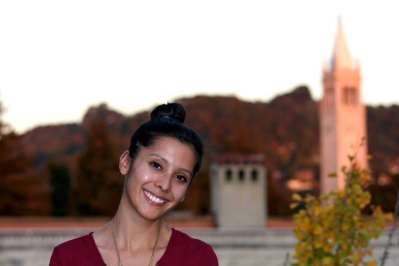
Department of Pharmaceutical Sciences
Education
B.S. - Chemistry - University of Texas at El Paso
Ph.D. - Molecular Toxicology - University of California, Berkeley
Mentor
Jim Lui, Ph.D.
Biography
Vanessa is an ASERT-IRACDA mentored by Dr. Jim Lui in the dept. of Pharmaceutical Sciences. She is originally from El Paso, Texas, where she attended the University of Texas at El Paso and earned a B.S in Chemistry. Vanessa left Texas for the bay area to conduct her doctoral studies in molecular toxicology at UC Berkeley. Her dissertation focused on utilizing toxicogenomics in yeast to elucidate toxicity mechanisms of Superfund contaminants such as trichloroethylene and heavy metals. Her current postdoctoral research is focused on understanding mechanisms of arsenic toxicity and translating these finding to help exposed populations. Specifically, Vanessa is interested in how zinc deficiency can modulate arsenic toxicity and how arsenic exposure alters zinc homeostasis at the molecular level. Her teaching interests include science communication, environmental health policy, science and society and toxicology. She is actively involved in STEM diversity initiatives with organizations such as the Society for the Advancement of Chicanos and Native Americans in Science and the Society of Toxicology. She has served on panel discussions and as an undergraduate mentor at the campus and national level in an effort to engage and support underrepresented students in the sciences. Outside of the lab Vanessa enjoys live music and outdoor activities such as hiking, biking and camping.
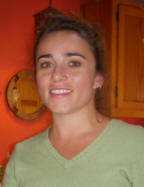
Current position:ᅠ Postdoctoral fellow, Cook Molecular Ecology and Evolution Lab
Department of Biology
University of New Mexico
erdeardor@unm.edu
Department of Pathology
Education
Experimental Pathology
University of Texas Medical - Galveston
Mentor
Greg Ebel, PhD
Biography
Eleanor is a post doctoral fellow in the UNM's department of pathology. In 2009 she received a Ph.D. in experimental pathology from the University of Texas Medical branch in Galveston, Texas. Her dissertation work was a field-based project aimed at understanding the ecology of tropical arboviruses, particularly endemic Venezuelan equine encephalitis virus in coastal Chiapas, Mexico. In 2001 she received a B.A. in biology from Reed College in Portland, Oregon. In between undergraduate and graduate school, she spent two years as a research technician at Oregon Health Sciences University. Eleanor is a native of Santa Fe and was glad to return to New Mexico in 2009 to work with Dr. Greg Ebel on the impact of West Nile viral genetic diversity on infection and disease outcome. Her long-term research interests are wild-life disease and the factors that influence emergence and host-switching. She hopes to stay in the southwest and contribute to improving local science education opportunities. When she's not doing science Eleanor enjoys experimenting in the kitchen, playing classical piano, outdoor activities with her dog and spending time with her family.
Publications in Preparation:
Publications in Print:
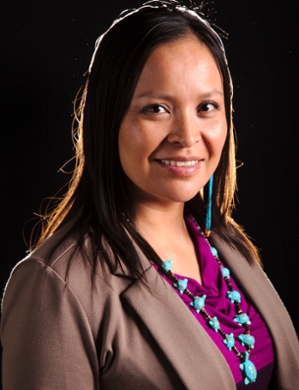
Tammi Duncan, Ph.D.
University of New Mexico
ASERT Postdoctoral Scholar
Department of Pharmaceutical Sciences
Mentor:
Laurie Hudson, Ph.D.
Education:
B.S. Microbiology- Arizona State University
M.S. Microbiology- University of Iowa
Ph.D. Biology- University of New Mexico
Tammi Duncan is an ASERT-IRACDA postdoctoral fellow and mentored by Dr. Laurie Hudson in the Department of Pharmaceutical Sciences in the College of Pharmacy. Her project focuses on the potential role of zinc as a way to attenuate the carcinogenic effects of environmental metals on DNA repair mechanisms.
Growing up in Sanostee, NM, Tammi started her undergraduate education at Diné College-Shiprock, NM and it was through their science department that Tammi participated in her first microbiology internship at Oklahoma State University with Dr. Gilbert John. She completed several undergraduate internships in a national lab and in academic research institutions around the country. Tammi has been a fellow in the ASU-Maximizing Access to Research Careers (MARC), ASU- Post-baccalaureate Research Education Program (PREP), and UNM-Initiative to Maximize Student Development (IMSD) programs.
While in graduate school at UNM, Tammi had the opportunity to supervise undergraduate students in Dr. Diana E. Northup’s lab and TA Biol 202: Genetics. In addition, Tammi helps start and co-instruct the successful UNM Pathways Scholar Conference Class. This class provided guidance, advice, and support from mentors and fellow students to undergraduate and transfer students that were transitioning into UNM. Tammi was also awarded the 2013-2016 Robert D. Watkins Minority Graduate Research Fellowship, a highly competitive fellowship sponsored by the American Society for Microbiology (ASM).
Tammi is involved with several scientific and professional societies including the Society for Advancement of Chicanos and Native Americans in Science (SACNAS), American Indian Science and Engineering Society (AISES), American Society of Microbiology (ASM), and currently serves on the Annual Biomedical Research Conference for Minority Students (ABRCMS) steering committee. Outside of research, Tammi enjoys riding her horses and bike, sewing, hiking, and traveling.
Publications
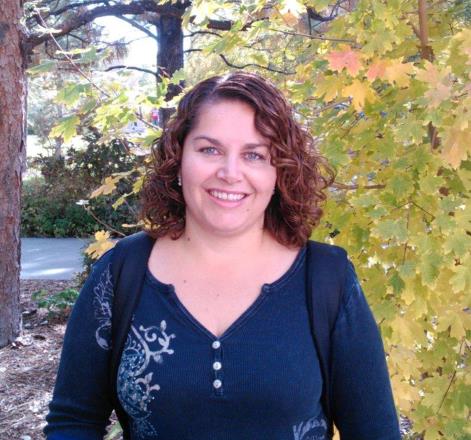
Department of Chemical and Nuclear Engineering
Education
B.S. - Biochemistry, University of Nevada, Reno
Ph.D. - Biochemistry and Molecular Biology, University of Nevada, Reno
Mentor
Research, Dr. Plamen Atanassov
Biography
Rubi is an ASERT-IRACDA postdoctoral fellow mentored by Dr. Plamen Atanassov in the Department of Chemical and Nuclear Engineering conducting research on enzymatic biofuel cells for production of energy for biomedical applications. She was born in Mexico City, Mexico and immigrated with her family at a young age to Reno, Nevada where she grew up. As a Howard Hughes Research Scholar at the University of Nevada Reno (UNR), Rubi studied chloroplast division in Arabidopsis. Shortly after earning her B.S. she accepted a Laboratory Technician position where she prepared cDNA libraries, sequenced Expressed Sequencing Tags (ESTs) and made microarray slides from multiple grape and CAM performing plants and micro-algae. Rubi's graduate dissertation involved identification and characterization of a novel enzyme, Ipsdienol Dehydrogenas (IDOLDH), important in pheromone biosynthesis of Ips bark beetles. Rubi continued her dissertation work as a postdoctoral fellow at UNR. During this time she participated in two entrepreneurial programs, the Industry/Faculty Partnering Clinic headed by the UNR-DRI Technology Transfer Office and the NSF funded Innovation Corps (I-Corps). Rubi became co-founder and Chief Science Officer (CSO) of EscaZymes Biochemicals LLC (EZB), a specialty chemical biotechnology company. As CSO, she started efforts to scale up the chemical reaction of IDOLDH, of which, products will be the first to market. As part of her graduate and postdoctoral experience Rubi supervised a masters and multiple undergraduate students and served as a teaching assistant for two semesters. Her outreach efforts have included hands on demonstrations of insects and scents associated with her work to preschool classes, presentations of her experience as a Latina in a STEM career at Sparks Middle School and tutoring students belonging to the "No child left behind program" in Reno, Nevada. Rubi enjoys sewing, baking, salsa dancing, spending time with family and exploring the world with her young son.
Publications
Patent
Tittiger C., Figueroa-Teran R., Blomquist G.J, Method for producing monoterpene and monoterpenoid compounds and use thereof. U.S. Patent number 13/775,860, Filed February 25, 2013 (UNR09-003).
Research Support
NSF 08/01/11-07/30/14 Blomquist (PI)
How is pheromone stereochemistry regulated in Ips bark beetles?
Role: Co-PI
NSF-I-CORP 10/01/12-03/30/13 Tittiger (PI)
Insect enzymes for high value compounds for pheromone and scent industries.
Role: Entrepreneurial Lead/Senior personal
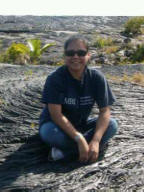
Department of Molecular Genetics and Microbiology
Education
Molecular Biology
New Mexico State University
Mentor
Scott Ness, PhD
Biography
Olivia is a post doctoral fellow working in the Molecular Genetics and Microbiology Department with Dr. Scott Ness. She received her PhD in Molecular biology from New Mexico State University studying the effects of Bisphenol-A on mitotic spindle formation in embryonic and somatic cells. She then moved to Memphis, TN for a post doctoral position at St. Jude Children's Research Hospital for two and half years.ᅠ Her research involved studying epigenetic mechanisms involved in the assembly of centromeric heterochromatin, specifically how centromeric DNA sequences contribute to the formation of heterochromatin. Olivia has now joined the ASERT-IRACDA program here at UNM.ᅠ She is currently studying a transcription factor, c-Myb, which regulates the expression of lineage-specific genes in differentiating hematopoietic cells.ᅠ In addition to research, she also enjoys interacting with and mentoring students of all ages.
Leadership
Program Coordinator for the 2012 ASERT Annual Retreat
Article
The IRADCA Program Helps Launch Careers in Research and Teaching
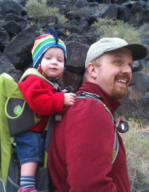
Department of Pharmaceutical Sciences
Education
Microbiology & Immunology-University of Michigan
(Immunology-University of Chicago)
(Microbiology-University of Washington)
Mentors
Hattie Gresham, PhD & Pam Hall, PhD
Biography
Brian is an ASERT post-doctoral fellow under the guidance of Drs. Gresham and Hall in the Department of Pharmaceutical Sciences in the College of Pharmacy. His post-doctoral work investigates the role of agr-mediated quorum sensing in Gram-positive bacterial pathogens, and elucidating how novel small molecular inhibitors of quorum sensing block the activation of pathogenic programs in Staphylococcus aureus. Originally from the Seattle area, Brian has lived, studied and worked in Boston, Chicago and Ann Arbor. His graduate dissertation explored the contribution of Th17-polarized CD4+ T cells to the development of Helicobacter pylori gastritis in mouse models of disease. Brian's history at the bench includes looking at the role of scaffolding proteins in metastatic prostate cancers, assay development to screen compounds effective in treating metabolic disorders, CD4+ T cell signaling during activation, and xenotransplantation. In the classroom he has taught high school, undergraduate and graduate students, covering topics from introductory clinical microbiology to mass-media coverage of biotechnology advances. Outside of work, Brian tries valiantly to keep up with his young daughter, and squeezing in hiking and biking trips when he can.
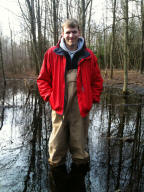
Department of Biology
Education
Ecology
University of California - Davis
Mentors
Helen Wearing, PhD
Felisa Smith, PhD
Biography
John is a post-doctoral fellow working in the Department of Biology with Drs. Helen Wearing and Felisa Smith.ᅠ As an ASERT fellow his research is focused on phenotypic plasticity in mosquitoes and its effects on disease transmission.ᅠᅠ John received his Ph.D. in Ecology from the University of California Davis in 2008.ᅠ As a graduate student, his thesis examined predator prey spatial dynamics between tadpole prey and their various predators.ᅠ Most recently, he was an Associate Scholar at the University of Pittsburgh where he investigated phenotypic plasticity of anurans from a phylogenetic perspective with Dr. Rick Relyea.
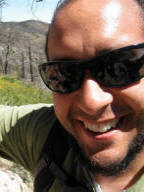
Current position: Lecturer: Concepts in Biology (non-majors); Case Studies in Science: Science, Society, and Politics.
Director, STEM Academy Program,
Director, Berkshire Mathematics & Science Partnership Program,
Massachusetts College of Liberal Arts
C.Himes@mcla.eduᅠ
Department of Biology
Education
Zoology
University of Washington
Mentors
Joe Cook, PhD
Enrique Lessa, PhD
Biography
Chris was a Postdoctoral Fellow in the Department of Biology. He received his bachelor's degree from University of Massachusetts, Boston, where he was a fellow in the Ronald McNair Program. While pursuing his interests in research and teaching, Chris entered the Department of Zoology at the University of Washington and earned his Ph.D. in 2008. As a graduate student, he worked at the Burke Museum studying the biogeography and evolution of mammalian populations in the temperate forest of North and South American. He was HHMI Postdoctoral Fellow at Williams College. There he examined the influence of isolation on island populations of chorus frogs, from Isle Royale National Park in Lake Michigan. While a graduate student, Chris co-created a course for which he was awarded the University's Excellence in Teaching Award. At Williams College he instructed classes and worked with students individually. As an ASERT fellow, Chris worked in biogeography incorporating a genomic approach to study several small mammal species in South America through the lab of Dr. Joe Cook and was co-advised by Dr Enrique Lessa of Universidad de la Republica, Uruguay.
Presentation
Speaker at IRACDA Conference 2012
ArticleA Shared Vision of Mentoring from Different Perspectives
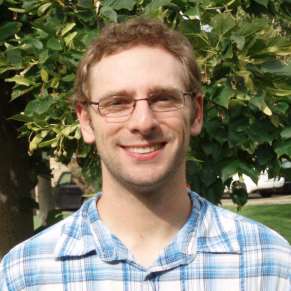
Community Environmental Health Program
Education
B.A. - Environmental Science, Northwestern University
M.A. - Geography, University of Arizona
Ph.D. - Geography, University of Denver
Mentor
Dr. Johnnye Lewis
Biography
Joe Hoover is an ASERT-IRACDA post doctoral fellow in the Community Environmental Health Program under the supervision of Dr. Johnnye Lewis. Joe's post doctoral research emphasizes the visualization and spatial analysis of heavy metal exposure throughout the Navajo Nation. He is working to understand spatial patterns of exposure and links to environmental pollution. Joe earned a PhD in Geography from the University of Denver and was awarded a United States Environmental Protection Agency Science To Achieve Results (STAR) fellowship in support of his research. Joe's dissertation investigated the role of Internet Geographic Information Systems (GIS) for visualizing and conveying the water quality of unregulated drinking water wells on the Navajo Nation. He also evaluated perceptions towards using Internet GIS for conveying drinking water quality information to the general public. Outside of work, Joe spends time hiking and camping.
Publications
Stephanie Jerman, Ph.D.
University of New Mexico
ASERT Postdoctoral Scholar
Department of Molecular Genetics and Microbiology
Mentor:
Ellen Beswick, Ph.D.
Education:
B.A. - Accounting - University of New Mexico
Ph.D. - Biomedical Sciences - University of New Mexico
Stephanie is an ASERT-IRACDA postdoctoral fellow mentored by Dr. Ellen Beswick in the Department of Molecular Genetics and Microbiology at UNM. During her graduate studies, she investigated protein trafficking defects leading to the disruption of cellular microdomains in Polycystic Kidney Disease. After earning her Ph.D., Stephanie completed a 2-year postdoctoral fellowship in the Department of Genetics at Yale University studying genes involved in a group of inherited disorders called ciliopathies, including Polycystic Kidney Disease, Oral-facial-digital Syndrome, and left-right patterning defects. Upon completion of this fellowship, she joined Dr. Beswick’s lab to study immune cells in the tumor microenvironment. Her project focuses on identifying the immune cell phenotypes and cytokine milieu in tumor microenvironments that contribute to tumor growth and disease progression..
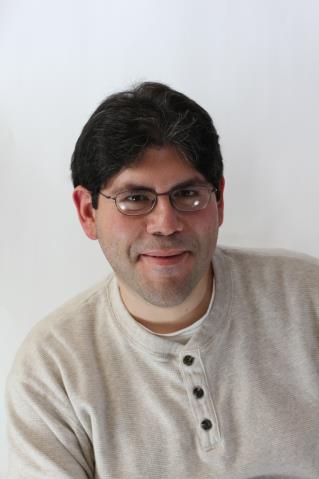
Center for Biomedical Engineering
Education
Chemical and Biomolecular Engineering
Johns Hopkins University
Mentors
Dr. Andrew Shreve
Dr. Keith Lidke
Biography
Jaime Javier Ju£rez is originally from the south Texas city of McAllen, where he graduated from McAllen High School. He then attended Stanford University in Palo Alto, California where he earned a Bachelor of Science degree in Mechanical Engineering. Jaime subsequently accepted a teaching assistantship to the University of Texas at San Antonio where he earned a Master of Science degree in Mechanical Engineering for writing a thesis on the conversion of coffee to bio-fuel. After a brief stint at Texas A&M University, Jaime moved to The Johns Hopkins University in Baltimore, Maryland where he was awarded the degree of Doctor of Philosophy in Chemical and Biomolecular Engineering. His dissertation on controlling microscopic components for the formation of new types of computer circuits received a highlight in Nature Materials and was selected as one of the best publications to appear in Lab on a Chip for 2012. Jaime recently became a first year ASERT Postdoctoral Fellow at the University of New Mexico. Prior to this appointment he was a postdoctoral research associate at the University of Illinois at Urbana-Champaign. Jaime's research primarily appears in journals published by the American Institute of Physics, the American Chemical Society and the Royal Society of Chemistry of the United Kingdom. When Jaime doesn't do research he reads historical fiction, writes short stories and volunteers his time with local animal shelters.
Publications
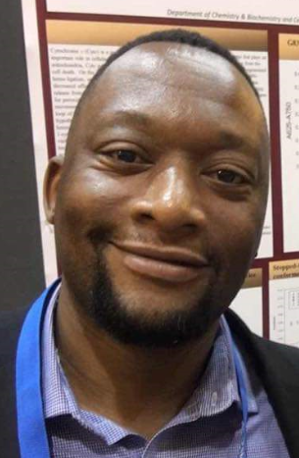
Elton Jhamba, Ph.D.
University of New Mexico
ASERT Postdoctoral Scholar
Department of Pathology
Mentor:
Diane Lidke, Ph.D.
Keith Lidke, Ph.D.
Education:
Ph.D. - Delaware State University
Elton’s postdoctoral work focuses on development of super-resolution microscopy technologies and uses those tools to better our understanding of protein-protein interactions on the membrane of mast cells with regards to allergic responses as well as the interplay of receptor tyrosine kinases on cancer cells. Elton earned a PhD in Optics from Delaware State University and his dissertation investigated the role of probe and mesh size in the rotational and translational diffusion of nano-probes in Ficoll solutions. Outside of work, Elton likes playing indoor soccer, waking up early on weekends to watch Manchester United and watching the Eagles play on Sundays.
Publications:
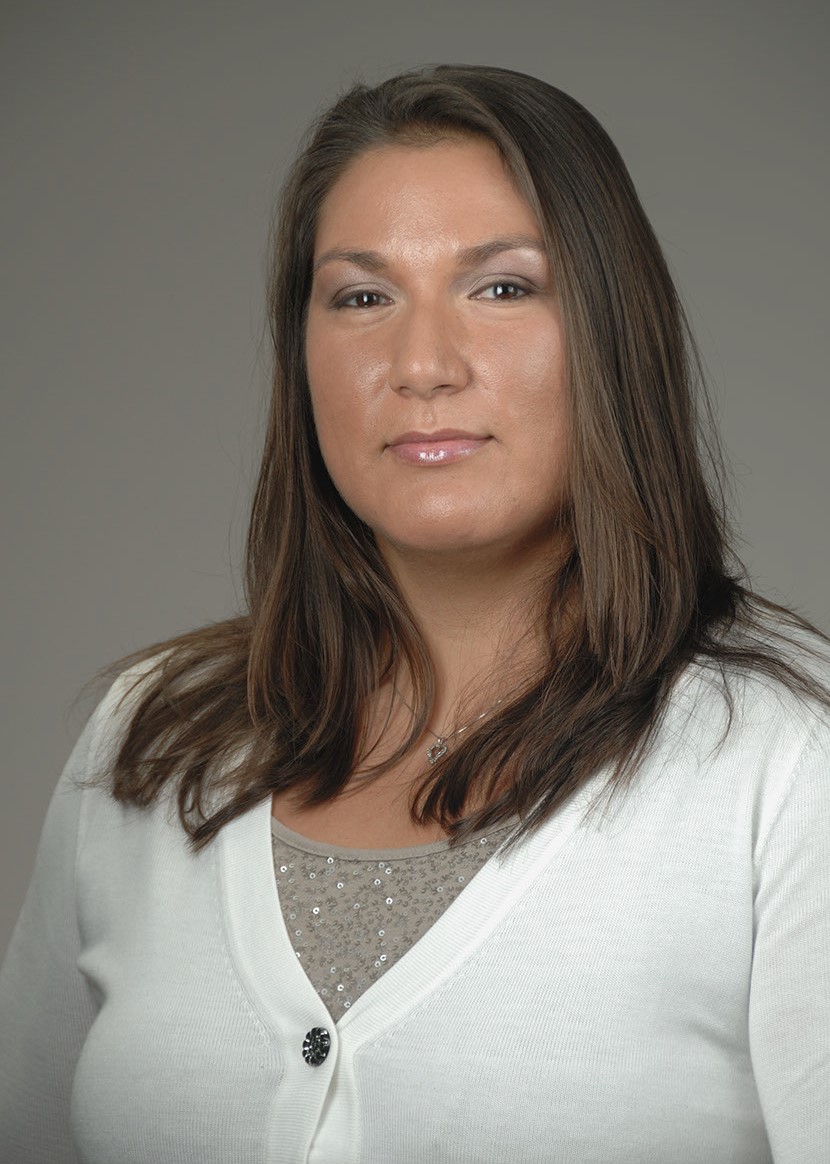
Department of Molecular Genetics and Microbiology
EducationB.S. - Rochester Institute of Technology
M.S. - University of Rochester
Ph.D. - University of Rochester
Mentor
Bryce Chackerian, Ph.D.
Biography
Naomi Lee is an ASERT-IRACDA postdoctoral fellow and mentored by Dr. Bryce Chackerian in the Department of Molecular Genetics and Microbiology. Her project focuses on the identification and development of potential Neisseria gonorrhoeae candidates using virus-like particles (VLP) to display peptide libraries. Previously, Naomi was a postdoctoral fellow in the National Institute of Neurological Disorders and Stroke (NINDS) of the National Institutes of Health (NIH) and mentored by Dr. Steven Jacobson, senior investigator of the viral immunology section. There her research focused on treatment and detection of human herpesvirus-6 (HHV-6). Naomi is involved with various scientific and professional societies including the American Chemical Society (ACS), International Society for Neurovirology (ISNV), American Indian Science and Engineering Society (AISES), and Society for Advancement of Chicanos and Native Americans in Science (SACNAS). In 2012, she was honored with the AISES lifetime Sequoyah fellowship, sponsored by her tribe, the Seneca Nation of Indians. Eventually, Naomi plans to pursue an independent research and faculty career. Lastly, Naomi is also a Captain and a lead instructor for the Maryland Army National Guard at the 70th Regional Training Institute in Edgewood, MD.
Publications
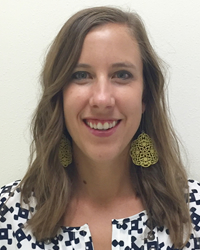
Department of Molecular Genetics and Microbiology
Education
B.S. - Biochemistry - Oklahoma Christian University, Edmond
Ph.D. - Biochemistry - Colorado State University, Fort Collins
Mentor
Mary Ann Osley, Ph.D.
Biography
Lindsey is an ASERT-IRACDA post-doctoral fellow mentored by Mary Ann Osley in the Molecular Genetics and Microbiology department. She is currently using budding yeast as a model organism to study the epigenetic and molecular properties of quiescent cells. As an undergraduate, Lindsey performed research at the Oklahoma University Health Sciences Center where she studied a ubiquitin conjugating enzyme, UbcM2 under the supervision of Dr. Scott Plafker. Additionally, Lindsey participated in a summer undergraduate research program at Pepperdine University where she studied the ER stress response in Dr. Jay Brewster’s lab. During her graduate studies, Lindsey focused on a histone deubiquitinating enzyme, Usp15, and its influence in co-transcriptional splicing under the mentorship of Dr. Tingting Yao.
Lindsey has enjoyed many mentorship opportunities including her involvement in Expanding Your Horizons, an organization geared toward providing female role models to young girls interested in science. Additionally, she has mentored undergraduate researchers in the lab and judged several science fairs in the Albuquerque area.
As part of her training in STEM education, Lindsey serves as a part-time instructor at Central New Mexico Community College where she has taught Molecular and Cellular Biology. She received training at the Summer Institute on Scientific Teaching to become a Scientific Teaching Fellow in 2016.
Lindsey’s hobbies include running, playing volleyball, hanging out with family, baking, and playing cards.
Publications
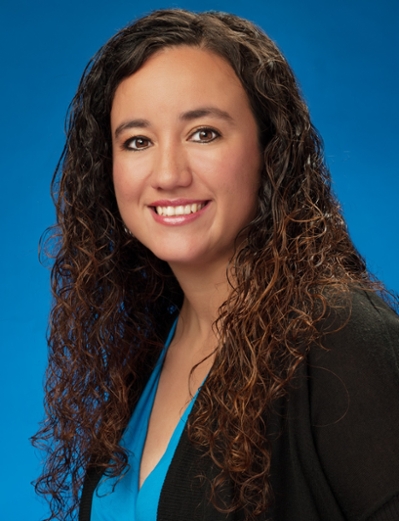
Biochemistry and Molecular Biology
Education
BS - Microbiology - New Mexico State University
MS-Molecular Biology-New Mexico State University
PhD-Molecular Biology-New Mexico State University
Mentor
Karlett Parra, PhD
Biography
Martha is an ASERT-IRACDA post-doctoral fellow in the Department of Biochemistry and Molecular Biology mentored by Dr. Karlett Parra. During her graduate studies at New Mexico State University Martha investigated the expression patterns of genes involved in Carbon and Nitrogen metabolism in the root nodules during the symbiotic association of Sinorhizobium meliloti with its host plant alfalfa in her Master's studies. She focused on the role of Sucrose Phosphate Synthase (SPS) in the root nodules of alfalfa during Nitrogen-fixing symbiosis in her doctoral studies. Her post-doctoral research investigates the functional role of vacuolar ATPase proton pumps in the fungal pathogen Candida albicans (C. albicans). Martha studies the cellular mechanisms by which V-ATPase contributes to C. albicans pathogenesis and how it can be inactivated to prevent virulence
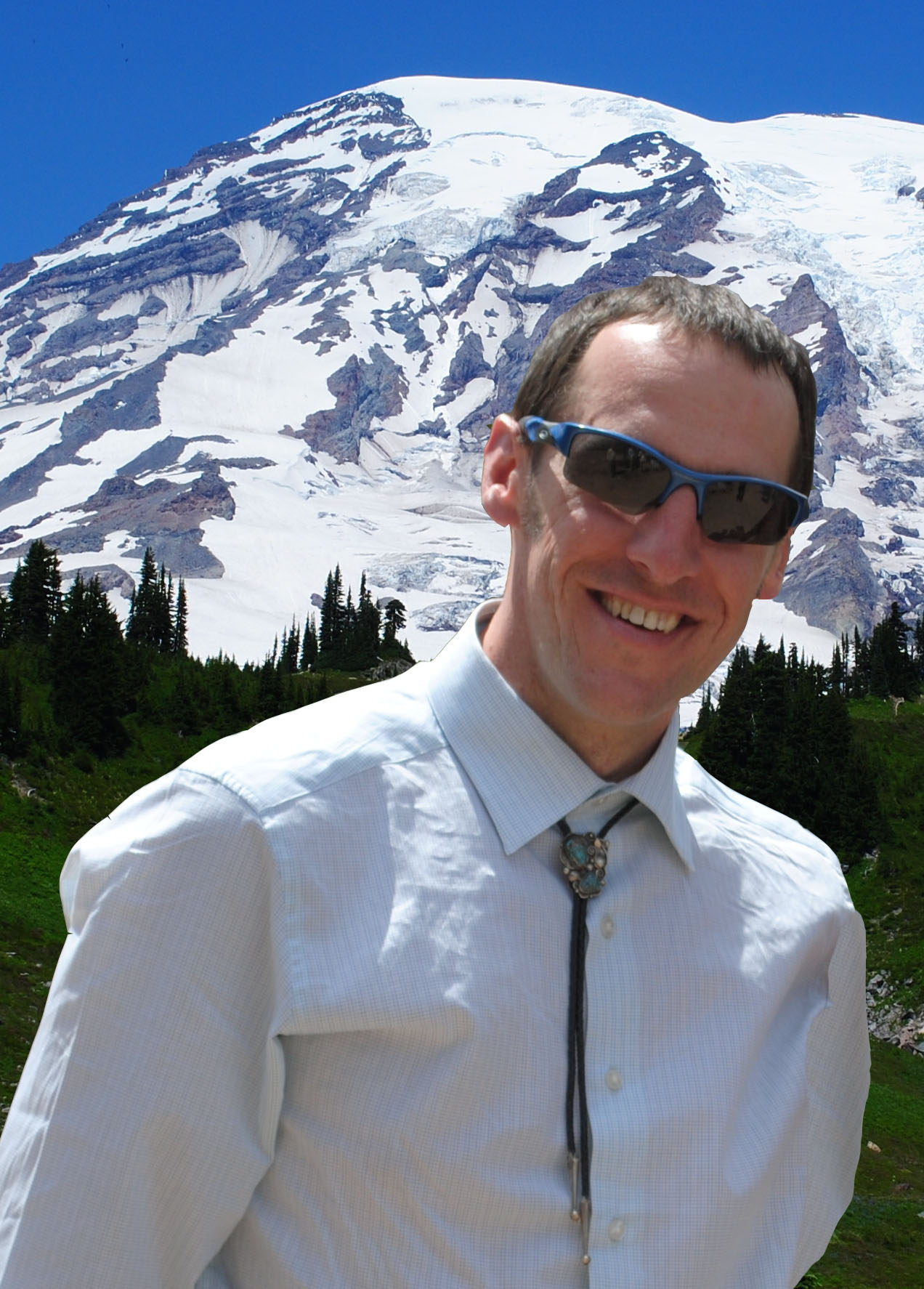
Department of Neurosciences
Education
B.A. University of Colorado, Boulder
PhD. George Washington University, and National Institute on Alcohol Abuse and Alcoholism (NIAAA)
Mentor
Research, Dr. C. Fernando Valenzuela
Education, Dr. Leah Freeman
Biography
Russell is an ASERT-IRACDA post-doctoral fellow in the department of Neurosciences. At the University of Colorado Russell majored in biochemistry and molecular, cellular, and developmental biology and was involved in undergraduate research studying the developmental expression of a T-box protein Tbx-12. Before entering graduate school Russell was involved in researching the dormant stage of mycobacterium tuberculosis and Beta-cell replacement therapy for diabetes. During his graduate carrier Russell investigated the regulation and trafficking of the ligand-gated ion channel 5-HT3A using whole-cell electrophysiology and microscopy. His post-doctoral research investigates the synaptic abnormalities in the hippocampus induced by prenatal alcohol exposure. Currently, Russell is co-teaching a biotechnology course at CNM that gives students the opportunity to learn current research techniques as well as hands on experience with those techniques.
Publications
Department of Pathology
EducationB.S. - Chemistry - New Mexico State University
Ph.D. - Molecular Pharmacology & Experimental Therapeutics - Mayo Clinic College of Medicine, Mayo Graduate School
Mentor
Bridget Wilson, Ph.D.
Biography Iᅠam from the Northwestern part of New Mexico.ᅠ My initialᅠinterest inᅠchemistryᅠput me on an indirect path to a doctoral degree in Pharmacology.ᅠI majored in chemistry at New Mexico State University (NMSU) where Iᅠengaged in synthetic organic chemistry research as a Maximizing Access to Research Careers (MARC) student. While in the MARC program I applied to and was offeredᅠthe opportunity to do research at the Mayo Clinic located in Rochester, MN as aᅠSummer Undergraduate Research Fellow (SURF). In the SURF program I worked in a pharmacology lab that bridged my interest in chemistry towards clinical applications. Intrigued by pharmacology and clinical translation I applied to Mayo Clinic for graduate studies in Pharmacology. I was accepted into the Molecular Pharmacology and Experimental Therapeutics track at Mayo and eventually I decided to join an immunology lab that was headed by Diana Gil Pages for my thesis work. The focus of the Gil lab is to study how theᅠT cell antigen receptorᅠ(TCR)ᅠand associatedᅠCD3 multiprotein complexᅠtranduces extracellular signals intracellularly. My project specifically focused on how TCR/CD3 ligands shape eventual T cell responses. Using antibodyᅠand antibody fragments that recognize different epitopes on the CD3 complex Iᅠstudied howᅠvalency impacted downstream T cell responses after CD3 ligation. I joined Bridget Wilson's group to studyᅠimmunoreceptorᅠtyrosine-basedᅠactivation motif (ITAM) signaling in the high affinity Fc epsilon receptor I that is present in mast cells and basophils. I am interested in studying what impacts the quality of Immunoglobulin (Ig) receptor ligands, how epitope spacing/targeting influences immune cell activation, and how ITAM signaling shapes the eventual immune cell response(s).ᅠOutside of the lab I enjoy being with my family and friends.ᅠᅠ
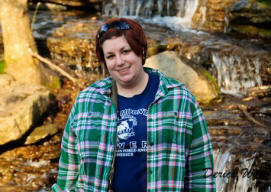
Position effective September 2013: Assistant Professor
Department of Chemical Engineering
Tennessee Tech University
japascal@salud.unm.edu
Department of Pathology
Education
Chemical Engineering
Tennessee Technological University
Mentors
Vittorio Cristini, PhD
Biography
Jennifer is an ASERT - IRACDA postdoctoral fellow mentored by Dr. Vittorio Cristini in the Department of Pathology conducting research related to multi-scale modeling of cancer tumors. Born and raised in Signal Mountain, Tennessee, Jennifer earned her PhD in Chemical Engineering from Tennessee Technological University in 2011, also where she received her B.S. in Chemical Engineering in 2006. During her PhD, she worked on modeling convective-diffusive transport in electrical-based bioseparation systems. Her work was recognized through the American Institute of Chemical Engineers (AIChE) National Separations Division Award in 2010. She was also heavily involved in engineering education research during her PhD and co-conducted pedagogical workshops and developed new approaches to improve student learning of transport phenomena concepts with her PhD advisor, Dr. Pedro E. Arce. Jennifer also enjoys playing tennis, traveling, painting and hiking.
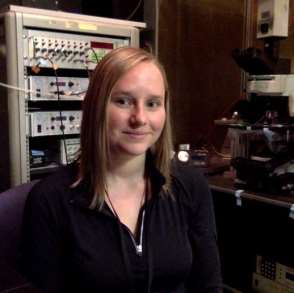
Department of Neuroscience
Education
B.S. - Psychology - Arizona State University: Barrett Honors College
Ph.D. - Neuroscience - Arizona State University
Mentor
Bill Shuttleworth, Ph.D.
Biography
Danielle is an ASERT-IRACDA post-doctoral fellow in the Shuttleworth Lab within the School of Medicine's Neuroscience Department at the University of New Mexico. For her undergraduate thesis work, she focused on functional neuromuscular stimulation in the rodent while in a spinal cord injury research lab with Ranu Jung, Ph.D. and also worked on identifying the neurotransmitters involved in motor-evoked potentials by whole brain stimulation and EMG recordings. In her early graduate work, she spent a year working at the College of Medicine in Phoenix, AZ with Ron Hammer, Ph.D. and Ella Nikulina, Ph.D. on a rodent cross-sensitization study involving social-defeat stress and methamphetamine addiction. For the remainder of her graduate studies, she worked with Brian H. Smith, Ph.D. studying calcium-mediated excitation and plasticity in primary olfactory pathways using the honey bee as a model. She employed 2- photon excitation (2-PE) microscopy to identify the bioaminergic and cholinergic influence on the plasticity exhibited in the invertebrate antennal lobe, which is functionally analogous to the vertebrate olfactory bulb. For her post-doctoral research studies, she plans to utilize her 2-PE imaging skills and prior rodent experience to study the mechanisms of spreading depression (SD). SD is onset following ischemia or trauma and has implications of cell death and neurodegeneration.
Publications

Department of Biochemistry
Education
Biochemistry
University of Wisconsin-Madison
Mentor
Karlett Parra, PhD
Biography
Summer Raines is a postdoctoral fellow mentored by Dr. Karlett Parra in the department of Biochemistry. Her postdoctoral research is focused on how V-ATPase controls pH regulation and vacuolar function in the fungal pathogen Candida albicans and how defects in V-ATPase function affect virulence.ᅠ Summer originally hails from Rochester, NY and attended the State University of New York at Geneseo, where she earned a BS degree in Biochemistry in 2003.ᅠ In July 2010, she earned a Ph.D. in Biochemistry from the University of Wisconsin-Madison. Her thesis work focused on novel pathways involved in the development of type 2 diabetes, specifically how vascular permeability affects delivery of insulin to peripheral tissues.ᅠ Outside of lab, Summer also enjoys traveling, cooking, tennis, playing the piano, live music, and anything involving the great outdoors.
Publications
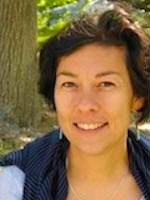
Current position: Assistant Professor
Department of Biochemistry and Molecular Biology
University of New Mexico School of Medicine
MRosenberg@salud.unm.eduᅠ
Department of Neurosciences
Education
Biochemistry
Humboldt University
Mentor
Dan Savage, PhD
Biography
Martina was a research scientist in the Department of Neurosciences working with Dan Savage. She received her PhD in Biochemistry at Humboldt University in Berlin, Germany working on gene regulation. Her professional interest revolved around fetal alcohol related learning disorders. Her focus was the identification biomarkers as early detection tool to diagnose low level maternal drinking during pregnancy. This conveniently combined her background in biochemistry and molecular biology with an interest in behavioral outcomes after exposure to toxins. In parallel to pursuing her goals as a scientist, she was instructing students in various settings about what she was excited about. The list of non-academic passions is open-ended as well and includes cycling, skiing, gardening and her pet chicken.
| Spring 2011 | ASBMB travel award, oral and poster presentation at annual meeting: "Rethinking the Undergraduate introductory neurobiology course: a path to student centered learning" |
| Fall 2008 | Development of Freshmen Learning Community Class "Alcohol, your Brain and Learning" The concept was positively received, but did not get funded due to budget uncertainties |
Teaching Experience
| From Fall 2012 | ᅠBIOC 423 intro to Biochemistry |
| Spring 2011 | ᅠBIOL 419/519 Neurobiology Adding WebCT component, organizing and teaching class, guiding TA |
| Spring 2010 | BIOL 419/519 Neurobiology Designing expansion of course, organizing and teaching class, guiding TA |
| Fall 2009 | BIOL 402/502 Neurobiology, Developing and teaching a new special topics course, engaging students in several different small group learning experiences |
| Spring 2007 | ᅠPHARM 706 Foundations of Drug Action Teaching RNA block for first year PharmD students |
| 4/ 97-8/99 | Substitute Teacher for Biology and Chemistry Lecturing, facilitation of group learning, test administration (Albuquerque High, Sandia High) Albuquerque Public Schools, Albuquerque, NM |
| 1993-1996 | ᅠTeaching Assistant for Physics and Biochemistry Freie Universit¦t Berlin, Germany Lectures for medical students and undergraduates, small group learning, pre- and post-assessments of student progress |
Since July 1, 2012
Assistant Professor for Biochemistry Education, UNM Department of Biochemistry and Molecular Biology

Current position: Research Assistant Professor
Department of Pharmaceutical Sciences
University of New Mexico College of Pharmacy
NCI K01 Grant
sruiz@salud.unm.edu
College of Pharmacy
Education
Biomedical Science
University of New Mexico
Mentors
Laurie Hudson, PhD
Biography
Iᅠam a 3rd year postdoctoral/ASERT fellowᅠworking in the College of Pharmacy under Dr. Laurie Hudson.ᅠI happily accepted the nomination for social director of the Post Doctoral Association, because, as a mom, I am used to organizing/planning parties and events. These events are meant to promote comradery among Post-docs at UNM and facilitate future collaborations. While some of usᅠtry refrain from "science talk" at these events, most of us end up bouncing ideas of one another and seeking outᅠadvice from each other. Thus, our social events tend to be productive and entertaining! Our 1st social event was a happy hour, but we plan on doing several events throughout the year including bowling, movies, community service, judging science fairs, benefit runs and ZUMBA!
Publications
Manuscript in revision
Sabrina L. Samudio-Ruiz, Laurie G. Hudson. Dysregulation of DNA methylation following Epidermal Growth Factor-induced epithelial to mesenchymal transition in ovarian cancer cells. Landes Bioscience Epigenetics
Manuscripts in preparation
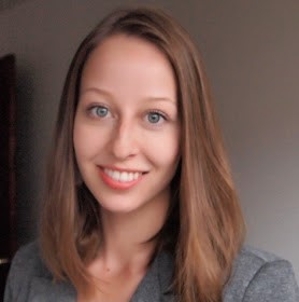
Hailey Sedam, Ph.D.
University of New Mexico
ASERT Postdoctoral Scholar
Department of Internal Medicine - Molecular Medicine
Mentor:
Scott Ness, Ph.D.
Education:
Ph.D. - Cell and Molecular Biology - Colorado State University, Fort Collins
B.S. - Biology - University of New Mexico, Albuquerque
Hailey is an ASERT-IRACDA post-doctoral fellow mentored by Scott Ness in the Internal Medicine/Molecular Medicine department. She is currently studying adenoid cystic carcinoma and investigating the molecular mechanisms and genomic signatures of this disease. Hailey is passionate about the role of genetics in human disease and personalized medicine. During her graduate studies at Colorado State University, she developed an assay for detection of recurrent meiotic copy number variation events.
Hailey engaged in scientific outreach during her time as a graduate student. She participated in an annual NSF outreach project, Biochemistry is Elementary, where she spent one month each year teaching 5th graders about increasingly complex topics in genetics. Additionally, she participated in Colorado’s Expanding Your Horizons, an organization which provides female role models to young girls interested in STEM. Hailey mentored undergraduate researchers in her graduate lab, and tutored fellow undergraduate students in math and science while she was an undergraduate herself.
Hailey was born and raised in Albuquerque, and is excited for the opportunity to return to her home state and contribute through research and STEM education.
Publications:
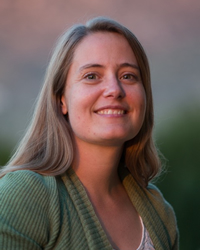
Education
Ph.D., Cell/Cellular and Molecular Biology, University of Colorado at Boulder
B.S., Biology, General, Florida State University
Department
Pathology
Biography
Tess is an ASERT-IRACDA postdoctoral fellow mentored by Angela Wandinger-Ness in the Pathology Department. Born in Orlando, FL she earned her B.S. in Biology at Florida State University. She began her research career at the University of North Florida working on papillomavirus DNA replication while also teaching introductory biology labs. As a graduate student at the University of Colorado, Boulder, Tess investigated endosomal transport mechanisms in the budding yeast S. cerevisiae. Now In the Wandinger-Ness lab she is studying the coordination between growth factor receptor transport and signaling. Tess is also a member of the SpatioTemporal Modeling Center (STMC), an interdisciplinary, multi-institutional program whose research focuses on membrane dynamics in the context of cell signaling networks. Tess has been actively involved in STMC outreach by helping to coordinate the annual NanoDays children’s event. Outside of work, Tess enjoys many outdoor activities including backpacking, hiking and cycling.
Publications
• Lentz MR, Shideler T (2016) Phosphorylation of bovine papillomavirus E1 by the protein kinase CK2 near the nuclear localization signal does not influence subcellular distribution of the protein in dividing cells. Arch Virol 161(1):165–169.
• Shideler T, Nickerson DP, Merz AJ, Odorizzi G (2015) Ubiquitin binding by the CUE domain promotes endosomal localization of the Rab5 GEF Vps9. Mol Biol Cell 26(7):1345–1356.
• Russell MRG, Shideler T, Nickerson DP, West M, Odorizzi G (2012) Class E compartments form in response to ESCRT dysfunction in yeast due to hyperactivity of the Vps21 Rab GTPase. J Cell Sci 125(Pt 21):5208–5220.
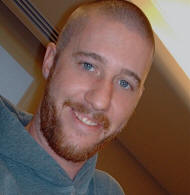
Department of Pathology
Education
BA - Biochemistry University of New Mexico
PhD - Biomedical Sciences - University of New Mexico
Mentor
Rama Gullapalli, M.D., Ph.D., FCAP
Biography
Robert is an ASERT-IRACDA post-doctoral scholar mentored by Dr. Rama Gullapalli in the Department of Pathology.ᅠ His post-doctoral research focuses on the synthesis of novel magnetic nanoparticles for the immunomagnetic isolation of circulating tumor cells (CTCs) and ᅠdownstream characterization using next-generation sequencing (NGS).ᅠ The ultimate goal of the research is to gain a deeper understanding of the mechanisms underlying the phenomenon of cancer metastasis.ᅠ Robert has a Bachelor of Arts in Biochemistry and a Ph.D. in Biomedical Sciences from the University of New Mexico.ᅠ Robert's Ph.D dissertation focused on the synthesis, characterization, and application of multifunctional superparamagnetic iron platinum nanoparticles (SIPPs) for the specific detection, magnetic resonance imaging (MRI), and therapy of prostate cancer.ᅠ In the classroom, Robert has four years of experience helping to teach Physical Biochemistry to senior-level undergraduate students.ᅠ Robert is a long-time resident of Albuquerque and, outside of work, enjoys the responsibilities of being a full time single father of two young children.ᅠ In his spare time, Robert enjoys playing guitar, singing, gardening, fishing, bowling, and hiking.
Publications
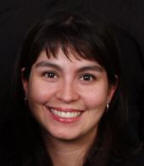
Current position: Postdoctoral Fellow
Department of Medicine
University of New Mexico School of Medicine
storres@salud.unm.edu
Division of Epidemiology and Biostatistics
Education
Biomedical Sciences
University of New Mexico
Mentors
Marianne Berwick, PhD, MPH
Biography
Salina Torres is a second year postdoctoral fellow in the division of Epidemiology and Biostatistics and mentored by Dr. Marianne Berwick. Her postdoctoral research is focused on the molecular epidemiology of cutaneous malignant melanoma. Specifically, she is interested in delineating the role of steroid hormones in the etiology and progression of melanoma. Originally from El Paso, TX, Salina attended the University of Texas at El Paso where she earned a BS degree in Biology with a minor in Chemistry. She then went on to earn a Masters in Public Health from the University of Texas Houston Health Sciences Center satellite campus in El Paso in 2003. Her thesis project, which was funded as a minority supplement to her mentors grant, investigated the potential for selection bias in study participants who provided stool samples for stool antigen testing versus those who did not provide samples based on risk factors for Helicobacter pylori infection in a cohort of children residing along the U.S.-Mexico border. Salina earned a Ph.D. in biomedical sciences with a focus in Toxicology in 2008 from the University of New Mexico. Her dissertation project, which was funded through a Ruth L. Kirschstein Predoctoral National Research Service Award, investigated the effects of in utero exposure to combinations of antiretroviral drugs used in the treatment of HIV infection and AIDS. Salina has presented her work at several scientific meetings including those held by the Environmental Mutagen Society and the Society of Toxicology. Her work has resulted in 8 peer-reviewed publications, 4 of which she is first author. In addition, she has published 2 book chapters, one focused on her dissertation work and one on her current research focus, melanoma. Salina also enjoys baking, reading, and spending time with her family.
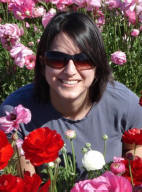
Department of Biochemistry
Education
Biology
University of California - San Diego
Mentor
Rich Cripps, PhD
Biography
Gloriana is a first year ASERT-IRACDA Postdoctoral Fellow. She started her educational career at Dartmouth College, where she earned a Bachelors degree in Biology. Gloriana went on to the University of California in Davis to work with Dr. Noelle L'Etoile on chemotaxis in Caenorhabditis elegans. She earned a PhD in biology from the University of California in San Diego. Her thesis work studied the development of neuronal synapses in the model genetic organism, C. elegans. She focused on a highly conserved protein, RPM-1, and the proteins downstream which are important for both axon termination and synapse formation. She is the recipient of a Cota-Robles Fellowship and an NSF GK-12 Fellowship. Through the NSF GK-12 Fellowship, Gloriana brought her research into the high school classroom and translated this work into lesson plans for both biology and AP biology students. She believes that outreach to the community is an important aspect of being a scientist and is excited to work with the Albuquerque community. Gloriana is currently working with Dr. Rich Cripps using Drosophila melanogaster as a model for muscle development. When Gloriana is finished pushing flies for the day, she practices yoga and swims.
Leadership
Program Coordinator for the 2012 ASERT Annual Retreat
Article
The IRADCA Program Helps Launch Careers in Research and Teaching
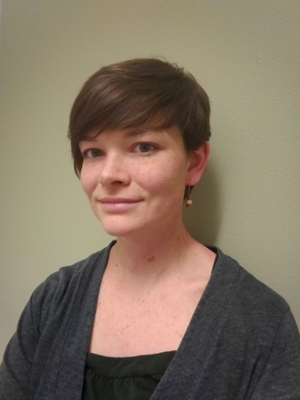
Crystal M. Vander Zanden, Ph.D.
University of New Mexico
ASERT Postdoctoral Scholar
Department of Chemical and Biological Engineering
Mentor:
Eva Y. Chi, Ph.D.
Education:
B.S. - Biochemistry – Doane University, Crete NE (2011)
Ph.D. - Biochemistry - Colorado State University, Fort Collins CO (2017)
Crystal Vander Zanden is an ASERT-IRADCA post-doctoral fellow mentored by Dr. Eva Y. Chi in the Department of Biological and Chemical Engineering. Crystal’s research aims to understand how small molecules affect aggregation of the Alzheimer’s Aβ peptide, and how those compounds can be used to slow disease progression. She uses biophysical and computational techniques to study this problem, including X-ray reflectivity, X-ray diffraction, and molecular dynamics simulations. Crystal earned her bachelor’s degree in biochemistry from Doane College in Crete NE, where she worked under Dr. Erin Wilson to study the environment-dependent structure of bone mineralization proteins. She completed her PhD at Colorado State University in the Department of Biochemistry and Molecular Biology. Under mentorship of Dr. P. Shing Ho, she studied the epigenetic DNA marker 5-hydroxymethylcytosine (5hmC) and the role it plays in DNA recombination. Specifically, she performed crystallography, calorimetry, and protein-interaction studies to determine the structural and thermodynamic impacts of 5hmC in DNA.
Crystal has an interest in promoting science education and outreach. As a graduate student, she participated in outreach activities at the elementary, middle, and high school level. She has enjoyed mentoring undergraduate and graduate students in the lab. Her graduate teaching experience culminated in receiving an award for Graduate Student Excellence in Teaching for the College of Natural Sciences at Colorado State University (2014). Outside of work, Crystal enjoys long distance running and she is an amateur oboist for the Rio Grande Symphonic Band.
Publications
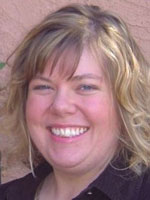
Current position: Research Assistant Professor
Department of Medicine, Division of Nephrology
University of New Mexico School of Medicine
Dialysis Clinic, Inc. Grant
hhward@unm.edu
Department of Pathology
Education
Pathology
Indiana University
Biography
Heather is a research assistant professor in the Department of Pathology and a member of the Wandinger-Ness Laboratory. Heather is a certified clinical laboratory scientist and earned her Ph.D. in Pathology from Indiana University-Purdue University in Indianapolis. Her research background is in renal developmental biology, cystic kidney disease, epithelial cell polarity and protein trafficking. Heather's dissertation work centered on the INVS gene and function of the INVS protein product, inversin, in the context of embryonic kidney development and cystic kidney disease. Her postdoctoral research focused on the molecular targeting and intracellular trafficking of polycystin-1, a protein that when mutant results in polycystic kidney disease. Furthermore, in collaboration with Dr. Tamara Roitbak in the Department of Neurosurgery, Heather demonstrated that the adult kidney harbors stem-like progenitor cells within the renal papilla. Heather has expanded her research to study the effects imposed on the diseased kidney by interstitial fibrotic mechanisms and vascular changes, and she is conducting a treatment protocol in a rat model of cystic kidney disease. Heather has mentored more than 15 high school, undergraduate and graduate students in the laboratory and she has instructed a graduate-level journal club course for three semesters. She appreciates the additional teaching and training opportunities that are provided within the ASERT program and is actively applying for tenure-track faculty positions.
Press Release
The American Society for Cell Biology: A hormone that dilates blood vessels during pregnancy opens an indirect pathway for treating polycystic kidney disease
Video
For something so seemingly inconsequential, primary cilia seemed an unlikely cause for something so devastating. Primary cilia are microscopic hairlike structures that stick out like antennae from virtually every cell in the human body, including the epithelial cells lining the kidneys. These nonmoving primary cilia were thought to be little more than evolutionary leftovers until 2000, when research first linked cilia defects to polycystic kidney disease (PKD), a life-threatening genetic disorder that affects 600,000 Americans, according to the National Institute of Diabetes, Digestive, and Kidney Diseases (NIDDK) and the Polycystic Kidney Disease Foundation. Half of those diagnosed with PKD will progress to end-stage renal disease by age 60.
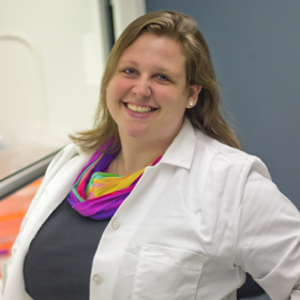
Nikole Warner, Ph.D.
University of New Mexico
ASERT Postdoctoral Scholar
Department of Molecular Genetics and Microbiology
Mentor:
Kathryn Frietze, Ph.D.
Education:
BS-Biology- Marian University, Fond du Lac, WI
MS- Microbiology and Immunology- University of Louisville, Louisville, KY
PhD- Microbiology and Immunology- University of Louisville, Louisville, KY
Nikki is an ASERT-IRACDA post-doctoral fellow in the Department of Molecular Genetics and Microbiology (MGM), mentored by Dr. Kathryn Frietze. During her graduate studies at the University of Louisville in Louisville, KY, she studied Old World Arenaviruses and their interaction with intestinal epithelial cells and how that impacted pathogenicity of these viruses. In the Frietze Lab, Nikki is using a deep sequence-coupled biopanning technology that has been developed by the lab in order to characterize the specificity of the antibody response to DENV in sera from patients infected with DENV. Additionally, Nikki is interested in disease pathogenesis of DENV and investigating the role of non-structural protein 1 (NS1) in disease severity and progression.
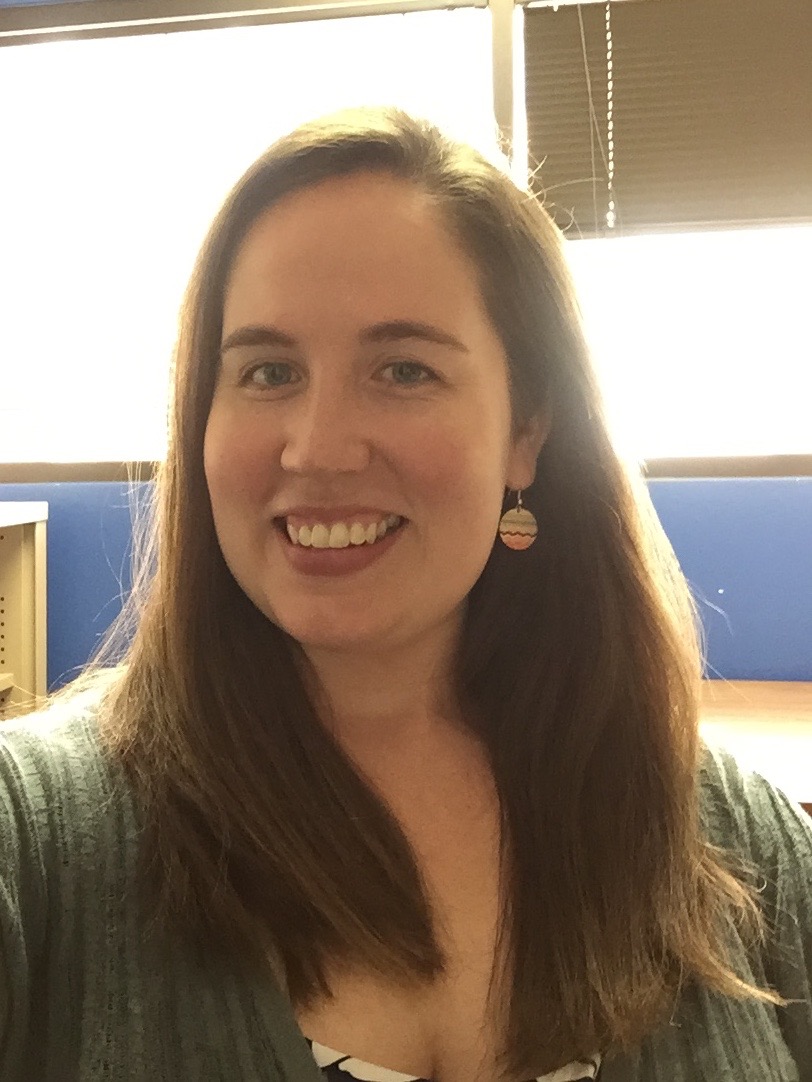
Department of Cell Biology and Physiology
EducationB.S. - Biochemistry - The University of Texas
Ph.D. - Molecular and Cellular Pathology - University of North Carolina
Mentor
Tom Resta, Ph.D.
Biography
Laura is an ASERT-IRACDA post-doctoral fellow mentored by Tom Resta in the Department of Cell Biology and Physiology. She is currently studying the role of mitoROS generation and actin polymerization in hypoxia-induced pulmonary hypertension. Laura is originally from San Antonio and attended the University of Texas in Austin, where she earned a BS in Biochemistry and a BA in the Plan II Honors Program. As an undergraduate, Laura performed sedimentation velocity experiments to help develop novel software for analytical ultracentrifuges under the mentorship of Borries Demeler (Biophysics Department, University of Texas Health Science Center at San Antonio), and she studied mitochondrial tetrahydrofolate metabolism in the laboratory of Dean Appling (Biochemistry Department, University of Texas). Laura moved east to the University of North Carolina for her doctoral studies, where she joined the lab of Christopher Mack (Department of Pathology and Lab Medicine). As a graduate student, she studied the role of the RhoA effectors and actin nucleators, mDia1 and mDia2, in regulating smooth muscle cell transcription and migration. Laura has enjoyed tutoring, teaching, and mentoring students throughout undergraduate and graduate school, including working at the University of Texas Learning Center for 3 years, teaching a Biology lab at Durham Tech Community College, and supervising undergraduate research projects. She also participated in science outreach events at the Durham Museum of Life and Science and at UNC's annual spring "DNA Day" festival. Laura's extracurricular interests include traveling with her husband, playing volleyball, jogging, game nights, fantasy sports, movies and TV, the Texas Rangers, and the San Antonio Spurs!
Publications
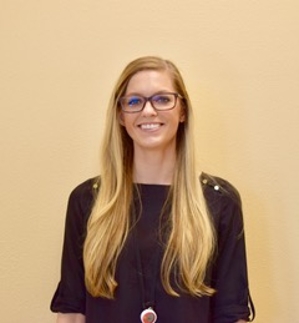
Christine Woods, Ph.D.
University of New Mexico
ASERT Postdoctoral Scholar
Department of Internal Medicine
Mentor:
Eric Prossnitz, Ph.D.
Education:
B.S. - Mount St. Joseph University
Ph.D. - New Mexico State University
Christine is an ASERT-IRACDA post-doctoral fellow mentored by Dr. Eric Prossnitz in the department of Internal Medicine. As an undergraduate at Mount St. Joseph University, Christine began her research career under the supervision of Dr. Christa Currie, where she worked to establish a method for heparin purity using capillary electrophoresis. During her graduate studies, Christine worked with Dr. Jennifer Curtiss at New Mexico State University. Her research project aimed to investigate the regulation of Drosophila melanogaster eye development and metabolic homeostasis. Christine served as a teaching assistant at New Mexico State University, teaching numerous introductory labs. In addition, she worked as a Howard Hughes Medical Institute Scientific Teaching Fellow, where she strengthened her teaching techniques and instructed upper division undergraduate as well as graduate courses. Currently, in the Prossnitz lab, Christine is using a mouse model to study obesity and metabolic syndrome. As a part of her ASERT-IRACDA training, Christine is serving as a part-time instructor at Central New Mexico Community College.
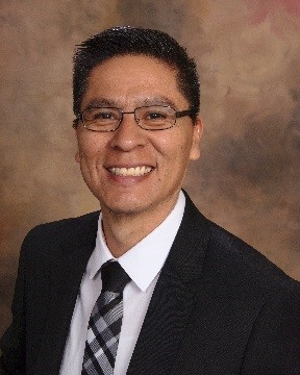
Sheldwin A. Yazzie, Ph.D.
University of New Mexico
ASERT Postdoctoral Scholar
Department of Internal Medicine, Division of Molecular Medicine
Mentors:
Dr. Charles Wiggins
Dr. Kevin English
Education:
BS – Biology
MPH – University of New Mexico School of Medicine
MS – University of Washington School of Public Health
PhD – University of Washington School of Public Health
Sheldwin Yazzie is an ASERT-IRACDA post-doctoral fellow under the guidance of both Dr. Charles Wiggins at the University of New Mexico School of Medicine Department of Internal Medicine Division of Molecular Medicine and Dr. Kevin English, Director of the Albuquerque Area Southwest Tribal Epidemiology Center. Sheldwin earned a doctorate degree in Exposure Science and a MS degree in Epidemiology at the University of Washington School of Public Health; prior he also received a MPH at the University of New Mexico School of Medicine. During his MPH studies, Sheldwin designed and developed an epidemiologic case-control study titled “Understanding Lung Cancer Risk among Navajo Former Uranium Miners”. For his dissertation, Sheldwin designed and developed an indoor radon prediction model for homes on the Navajo Nation. For this project, he designed a survey questionnaire for homes, collected indoor radon measurements, and geospatially mapped homes on the Navajo Nation. He then combined this information with geographic land covariates thought to be associated with indoor radon to develop an indoor radon prediction model. His goal in public health is to improve the health of all communities with a focus on disparate environmental exposures and disease rates among disadvantaged populations, specifically on American Indian/Alaska Native populations.
Publication:

Department of Pharmaceutical Sciences
EducationB.S. – Baylor University
Ph.D. – Texas A&M University
Mentor
Matthew Campen, Ph.D.
Biography
Dr. Katie Zychowski is an ASERT-IRACDA fellow mentored by Dr. Matthew Campen in the Department of Pharmaceutical Sciences at UNM. Katie’s primary research interests during graduate school focused on food and dietary toxicology. Her dissertation research involved intervention strategies for aflatoxicosis and studying the anti-inflammatory effects of calcium montmorillonite clay. Following her graduation from Texas A&M, Katie joined the Campen Lab where she studies how basic mechanisms involving respiratory toxicants alter vascular and metabolic health. Katie is interested in pursuing a career in toxicology with an emphasis in public health.
Katie has engaged in scientific outreach activities throughout her career including participation and leadership in the Undergraduate Peer Mentor Program (Society of Toxicology), Women in Science and Engineering (WISE- Texas A&M University), and involvement as a judge in the New Mexico Regional Science Fair. She is currently serving as the Postdoctoral Representative for the Cardiovascular Specialty Section through the Society of Toxicology and is an active participant in Women in Toxicology. Outside of the lab, Katie makes sincere efforts to learn Spanish.
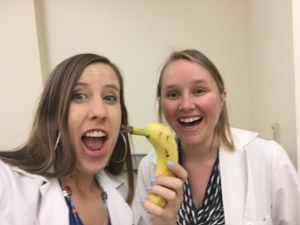
Workshop Facilitators: Lindsey J. Long, PhD (UNMHSC) and Danielle Taylor, PhD (UNM)
Description: In this workshop, participants will learn about what it is like to be a research scientist at UNM. Participants will learn what DNA is and why it is so important. Together we will break open the cells of bananas and look at the DNA from the cells. There is so much DNA we can actually see it without a microscope! Participants will also remove some DNA from their own cells and carry it home with them on a necklace!
Maximum capacity: 20 participants
Introduction:
In this lab we will create baby "Reebops" also known as candy creatures to learn about Mendelian Genetics. In a living organism, every cell has hereditary information that is encoded by DNA. When DNA is coiled (bunched together) it is called a chromosome. Chromosomes contain many different genes. Variations in these genes are called alleles. Each baby "Reebop" will get one allele from each parent. We will look at genetic variation by the different characteristics of each baby "Reebop".
A "Reebop" is a marshmallow creature with 14 alleles (7 chromosomes) made up of marshmallows and candy. A mom "Reebop" will produce egg gametes and a dad "Reebop" will produce sperm gametes. Half of the gametes from the dad (7 alleles) and half from the mom (7 alleles) will then create a baby "Reebop".
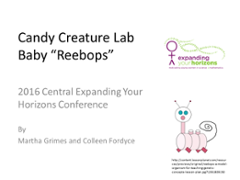

Mailing Address
School of Medicine Research Education Office
MSC08-4560
1 University of New Mexico
Albuquerque, NM 87131
Phone: (505) 272-1887
Fax: (505) 272-8738
Email: SOMREO@salud.unm.edu
Physical Location:
UNM Health Sciences Center (North Campus)
Reginald Heber Fitz Hall (Building 211)
Room B61